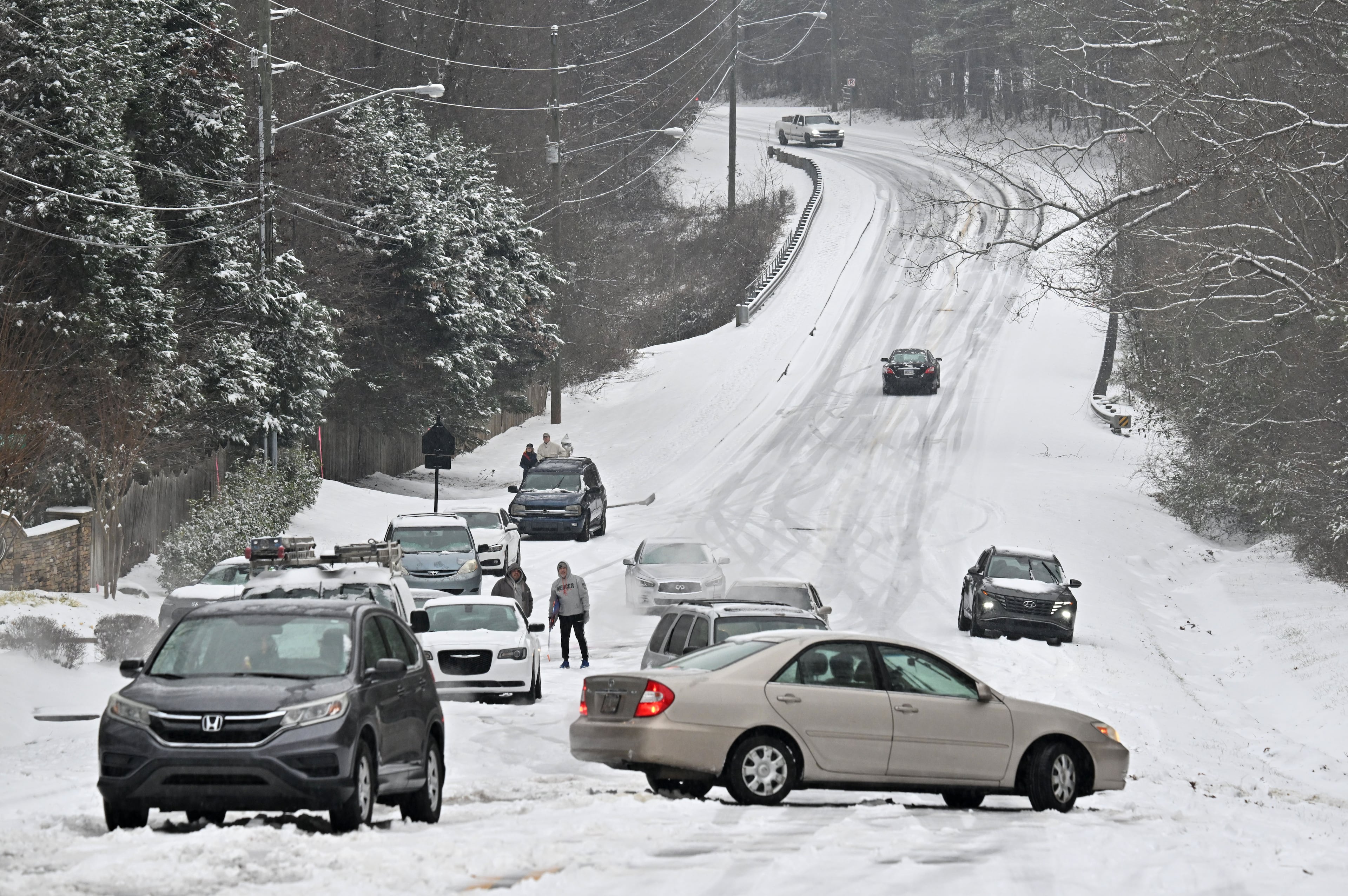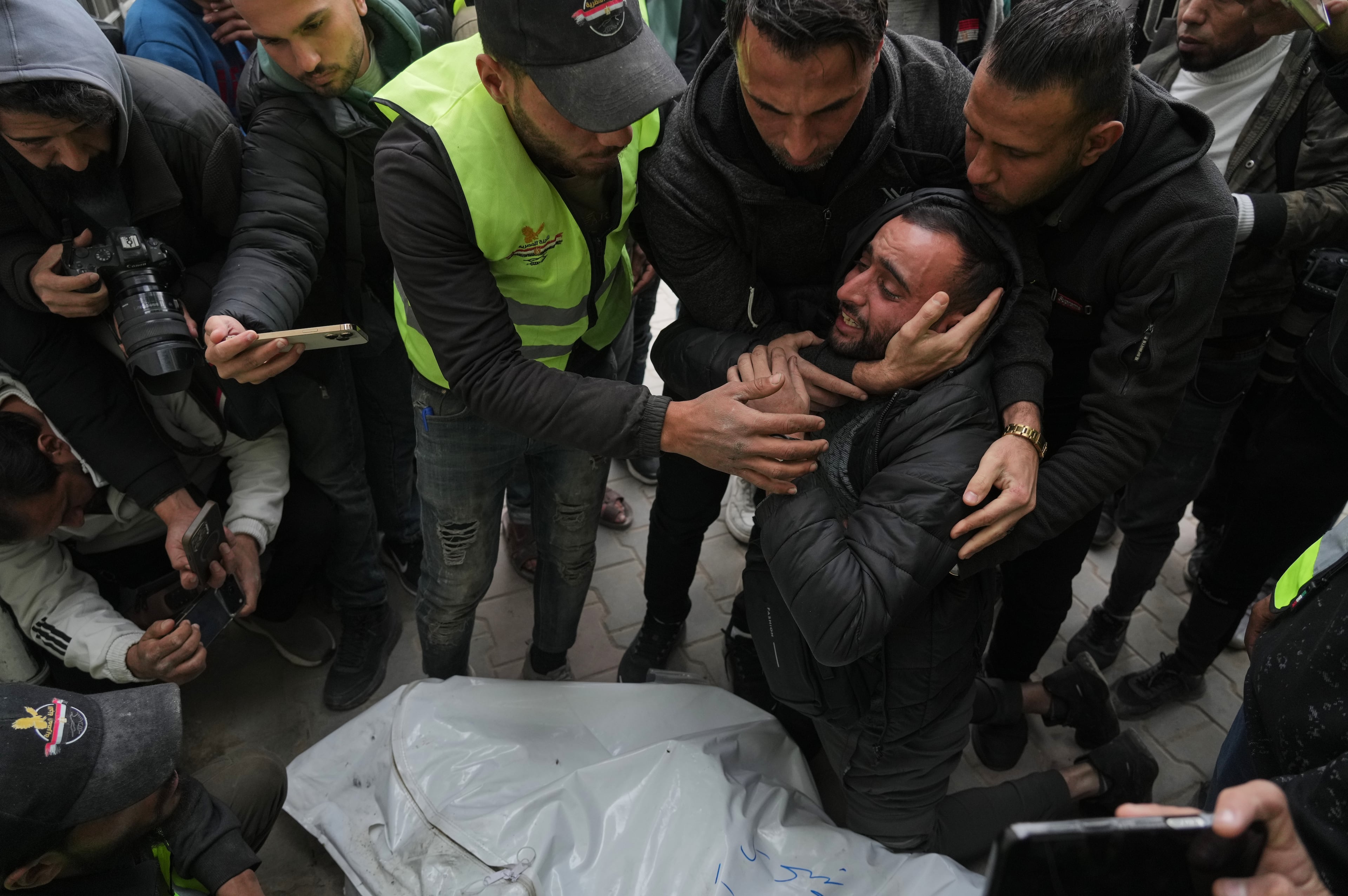Palestinians in Atlanta worry about relatives in Gaza
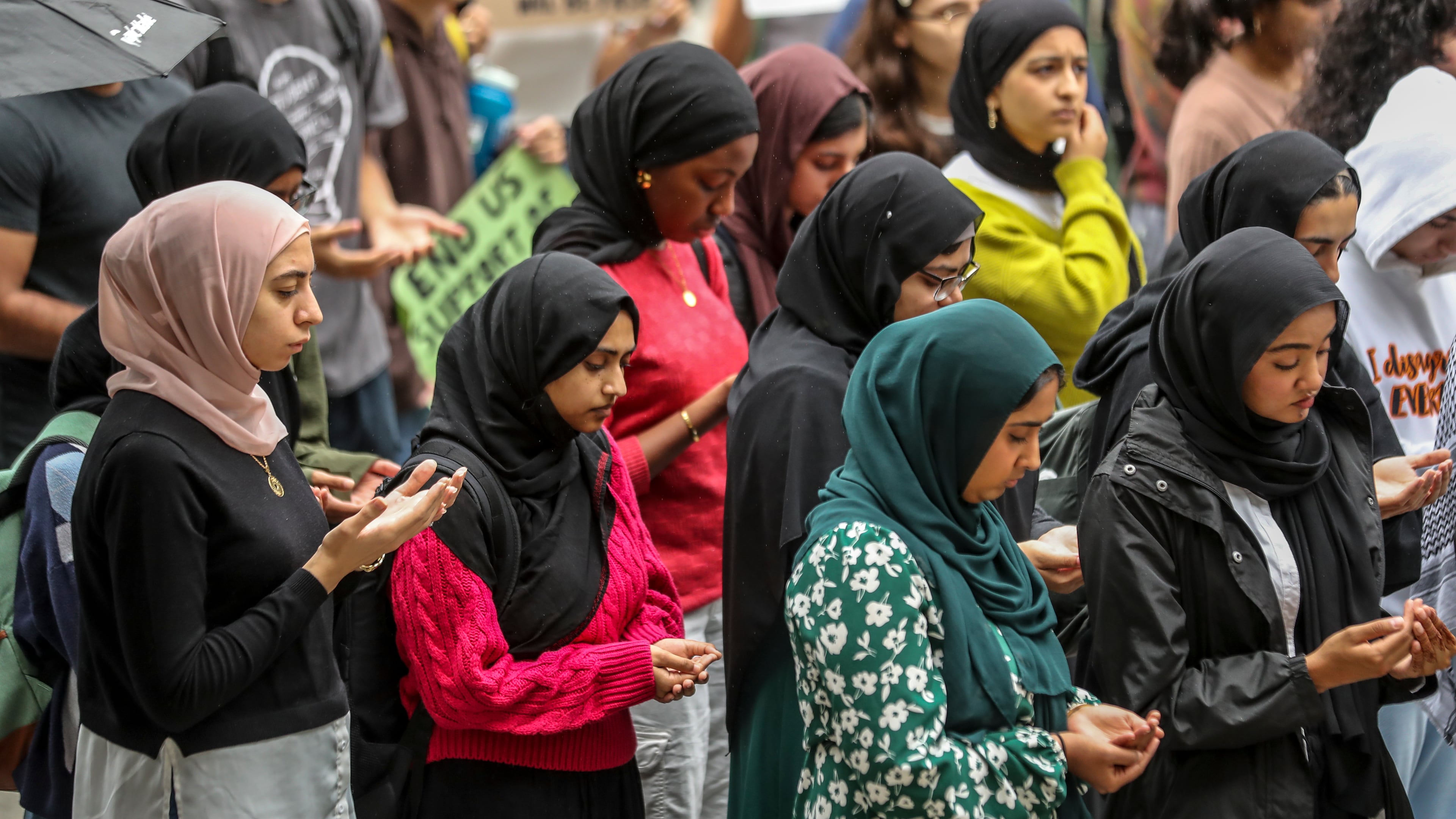
Ghada Elnajjar sometimes stays up until 2 a.m. and wakes up at 6 a.m. to monitor family groups on Facebook and WhatsApp to check on relatives in Gaza.
Her heart races and she’s anxious until she knows whether her relatives are alive and uninjured. She recently learned from a cousin that 18 members of that cousin’s in-laws were killed in a town near the center of the Gaza Strip.
“My immediate thought was this is where my uncle, aunts and cousins live,” said Elnajjar, of Alpharetta, the daughter of Palestinian refugees. “I just talked to (my uncle) ... and hope he’s OK. It’s a constant fear of the ‘what if’ scenarios.”
For Elnajjar and others with ties to the region, it has been a week of worry since the militant group Hamas mounted a devastating series of attacks in Israel beginning Oct. 7, killing civilians and abducting scores of people.
Israel retaliated by declaring war on Hamas and has launched destructive air strikes on neighborhoods in Gaza. The Israeli government has also imposed a total blockade on Gaza, restricting access to food, water and electricity as it prepares for a ground invasion.
In Israel, the death toll from the Hamas assaults crossed the 1,300 mark, the Associated Press reports. According to a Friday update from the Gaza Ministry of Health, roughly 1,800 Palestinians have been killed so far.
In a statement released on Thursday, the Georgia chapter of the Council on American Islamic Relations, the nation’s largest Muslim civil rights organization, condemned the killing of civilians in Palestine and Israel.
“We cannot imagine the fear of Palestinian civilians whose neighborhoods are being bombed. We cannot imagine the desperation of Israeli parents whose children have been kidnapped. War always hurts civilians the most. We urge an immediate ceasefire.”
With the U.S. government backing Israel, some Atlantans with ties to Gaza say they fear speaking out because they worry they could become targets here. Two people would not agree to be interviewed by The Atlanta Journal-Constitution for this story because they are afraid of retribution.
When Ibrahim Awad heard about the war, he immediately called his parents in Acworth to make sure relatives in Gaza were alright. His mother was born in Gaza in 1965, and she and his father have many other family members there.
“They’re just trapped. ... There’s really no other place to go,” said Awad, an attorney who lives in Woodstock. “The situation is really horrifying.”
He said Gaza is a place where people rely on and support each other, sometimes with members of several families living in one home.
His mother spoke to her relatives the day after the attacks. “Specifically, we want to know what we can do to help,” he said. They were told that they can’t help in any way but prayers.
Awad’s mother is worried many of her relatives will not survive. She’s already heard news of one death: a cousin’s son, Yasir, who was in his 30s, killed during an airstrike on a mosque. “He was on his way out when it happened but he was still caught in the blast,” his mother told him in Arabic.
Local residents with ties to both sides of the conflict have held rallies throughout metro Atlanta.
On Friday about 200 Palestinian supporters attended a noon rally at Georgia Tech sponsored by the university’s Muslim Student Association.
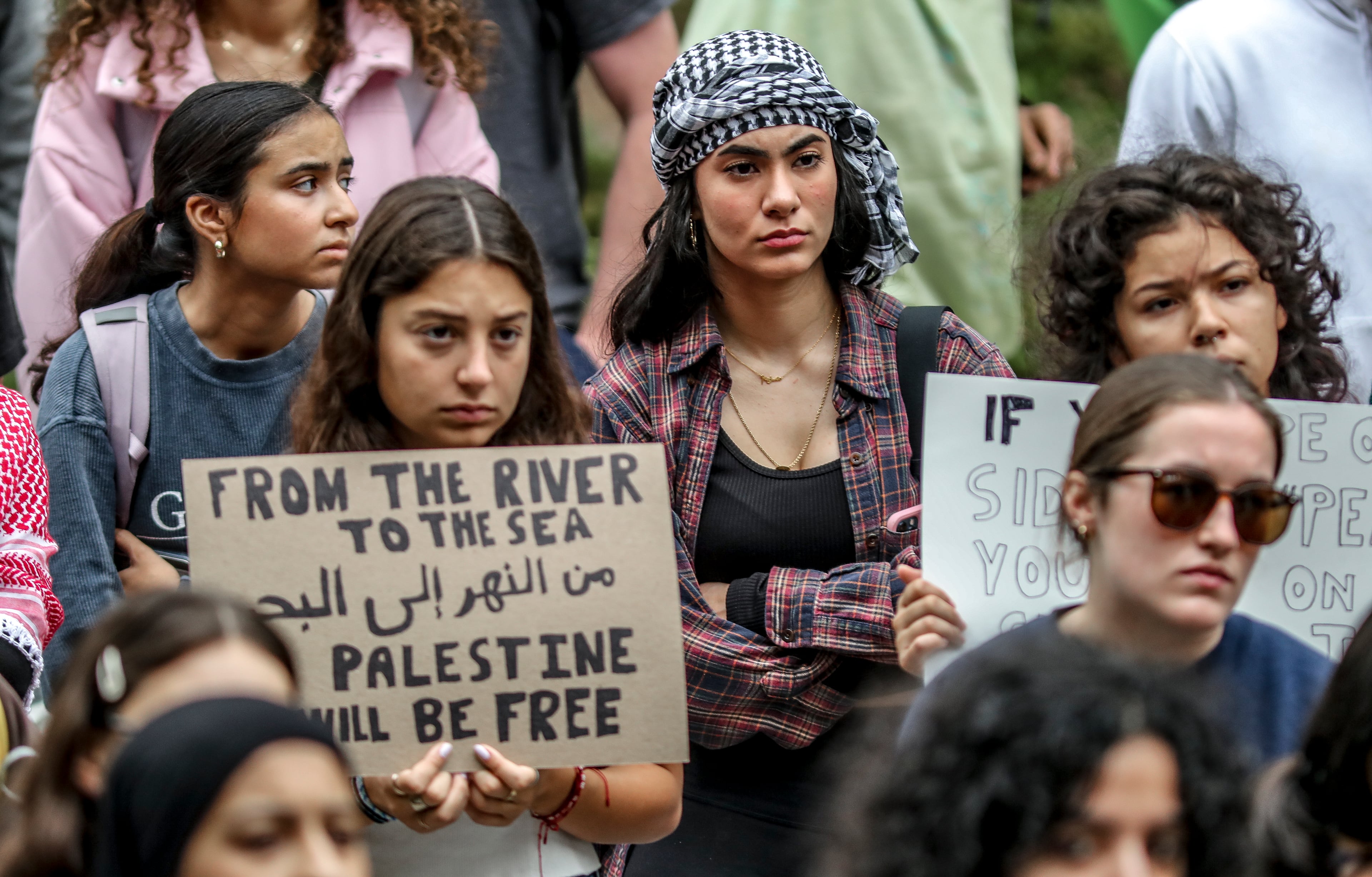
Hadeel Masseoud’s father, Najati Masseoud, is close to many of their extended family members in Gaza.
In the past few days, eight family members have been killed, including a baby. One relative was not home when the air strike hit. When he returned to find members of his family dead, he suffered a heart attack and is now hospitalized, Masseoud said.
Some of Masseoud’s father’s cousins have been left homeless by the bombings, she said. “They only have the clothes on their backs.”
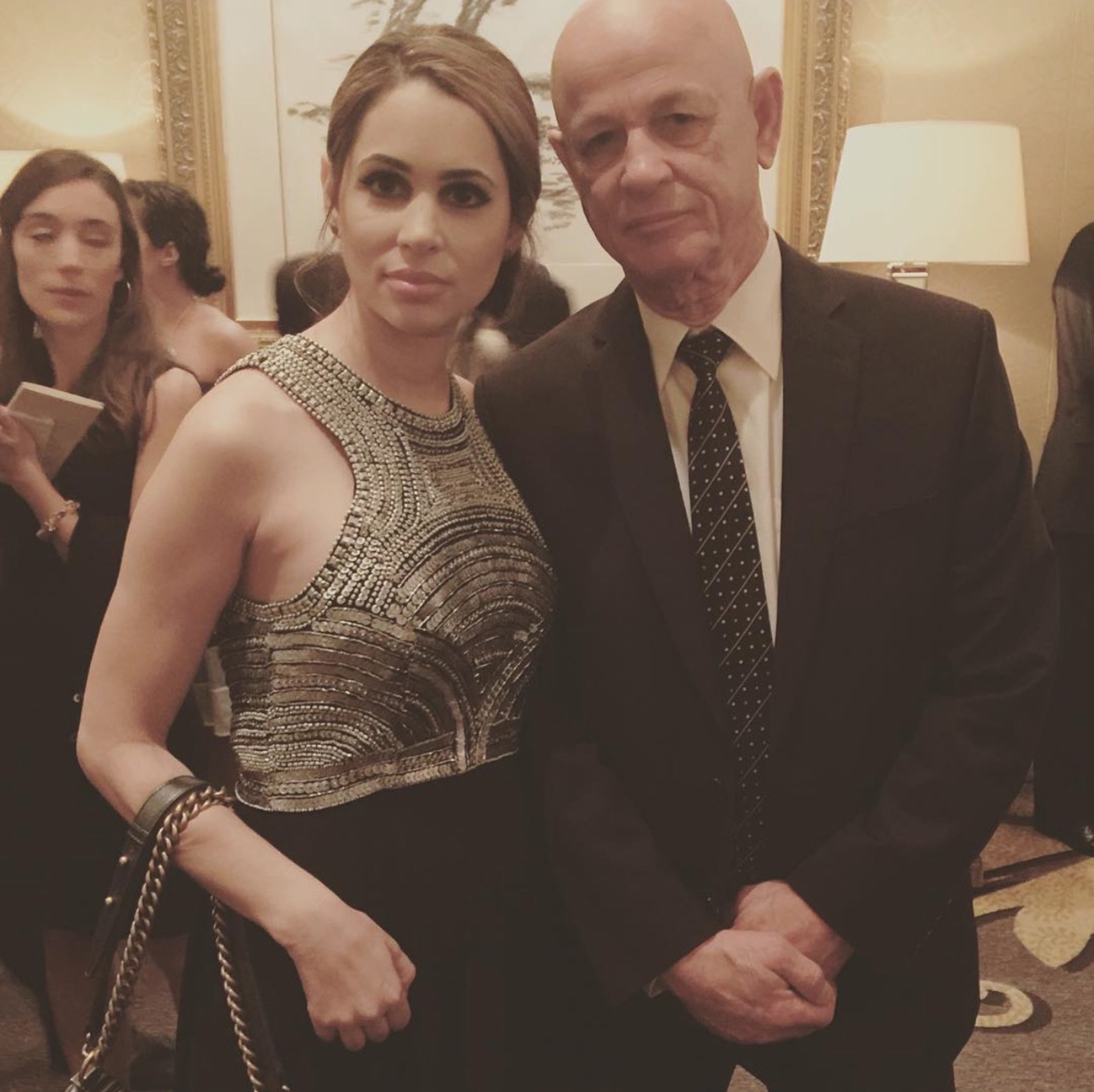
Masseoud’s father is 82, and lives in Sandy Springs and had plans to visit Gaza over Christmas. “Obviously he wanted to see his family before.... He’s getting older. Obviously, it doesn’t sound like it’s going to happen.”
“It’s taken a huge emotional toll,” she said. “He’s very affected by it.”
She and her family have helped financially support relatives in Gaza, because it was hard to make a living, even before the war.
“We consider it an obligation and now we have to step up the effort,” she said.
Metro Atlanta teacher Amani Saadeh’s Palestinian family members don’t live in missile-torn Gaza, but in the West Bank. Still, they’ve been impacted by the turmoil of the last week, with crossings between the West Bank and Israel closed and under surveillance, and rising uncertainty about the future.
”Right now they’re just stocking up on the necessities: bread, rice, and water — as much as they can just because they don’t know what will happen or what can happen,” Saadeh said. “It’s unsettling … they are scared.”
Saadeh’s mother happened to be visiting family in Palestine when Hamas launched its deadly rampage into Israel, triggering the declaration of war. For now, there’s no easy way out and back home.
”It’s an unfortunate timing for her to be there while this is happening, but there are Palestinians that live there every single day who don’t have an option of picking and choosing where to be.”
Saadeh says she is concerned about the welfare of Palestinians in Gaza, and that she would like to see more people in the U.S. share that concern. She believes there is less outrage over Palestinian deaths.
“I’m not saying one life is worth more than the other. All lives are valuable. All lives are worth the same.”
Masseoud echoed that sentiment: “We have to explain ourselves and defend ourselves, almost like Palestinians don’t matter enough,” she said. “We have to explain we’re not terrorists. Our lives are worthy too. We’re civilians too.”
Staff writer Martha Dalton contributed to this report.


